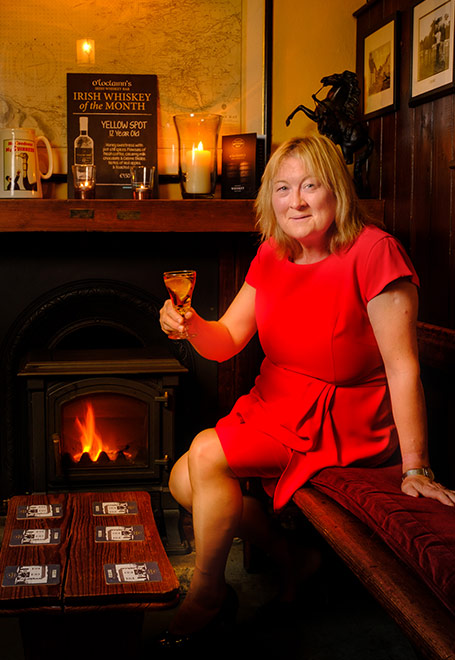
Welcome to a real Irish pub.
No Wi-Fi, no TV, just chat and drink!
Located in the village of Ballyvaughan, County Clare, O Loclainn’s is a family-run pub and whiskey bar with a heritage that stretches back 6 generations. The pub is owned by the O’Loghlens: local farmer Peter, his teacher wife Margaret and their daughter Eimear. It dates back in its present form to 1935 when the pub was purchased by Peter’s father McNeill O’Loghlen – which explains why it is still locally known as ‘McNeills’. Peter and Margaret were gifted the pub from Peter’s father in 1996 and it has been a proud part of the community for many years.
The building itself has its roots in the 1840s when it housed a hotel known as McNamara’s Hotel. Run by Dylan Thomas’s father-in-law, it was a popular stop-off for horse coaches. The bar you’ll sit at today was once part of a tea-blending shop – hence the unique set of wooden drawers that are a focal point of the pub.
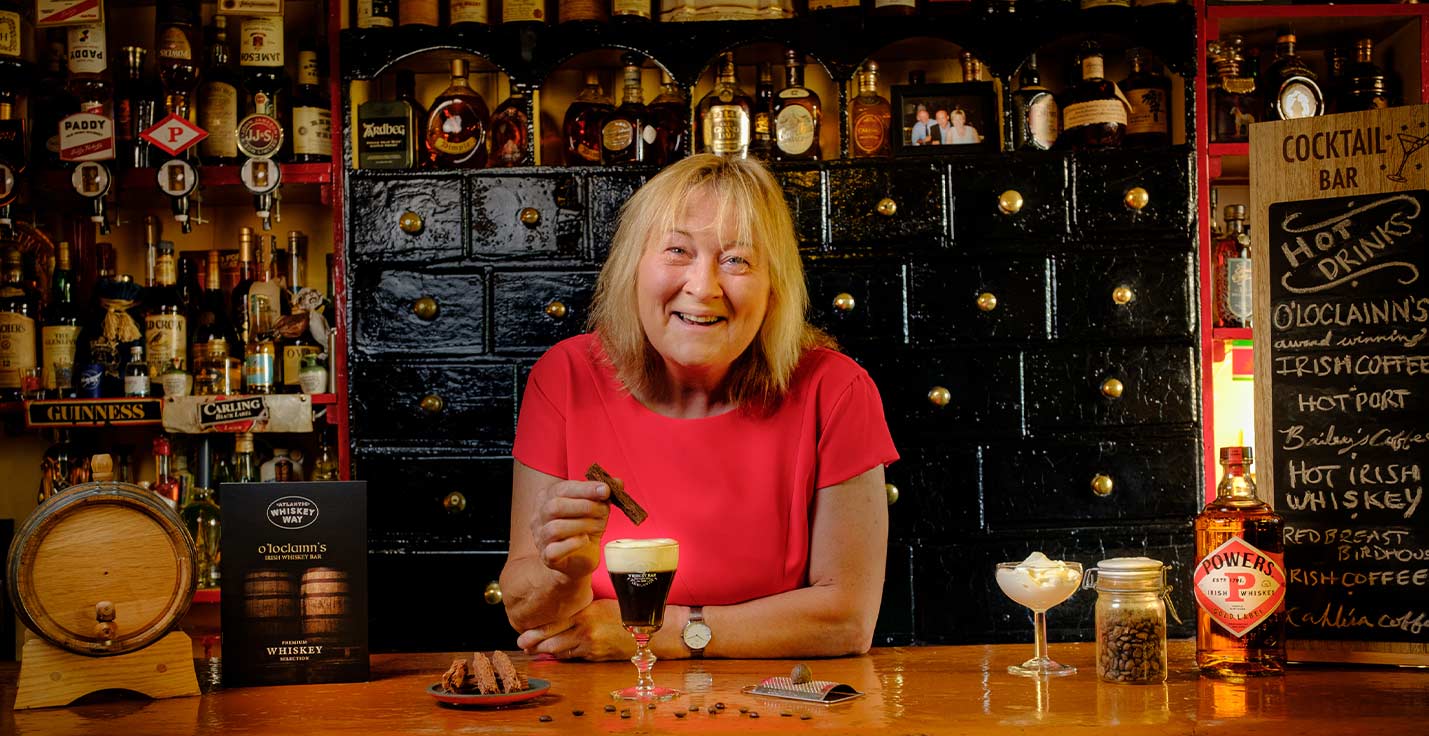
Margaret has an avid interest in the history of Irish whiskey and its distillation and is happy to take you on a tour of the pub’s collection. Whether you have a passion for the oaky, the grainy or the fruity – she will help you choose one to suit your palate. If you would like to sample a variety of whiskies from multiple distilleries, you can enjoy one of our whiskey platters which can be tailored to suit any budget.
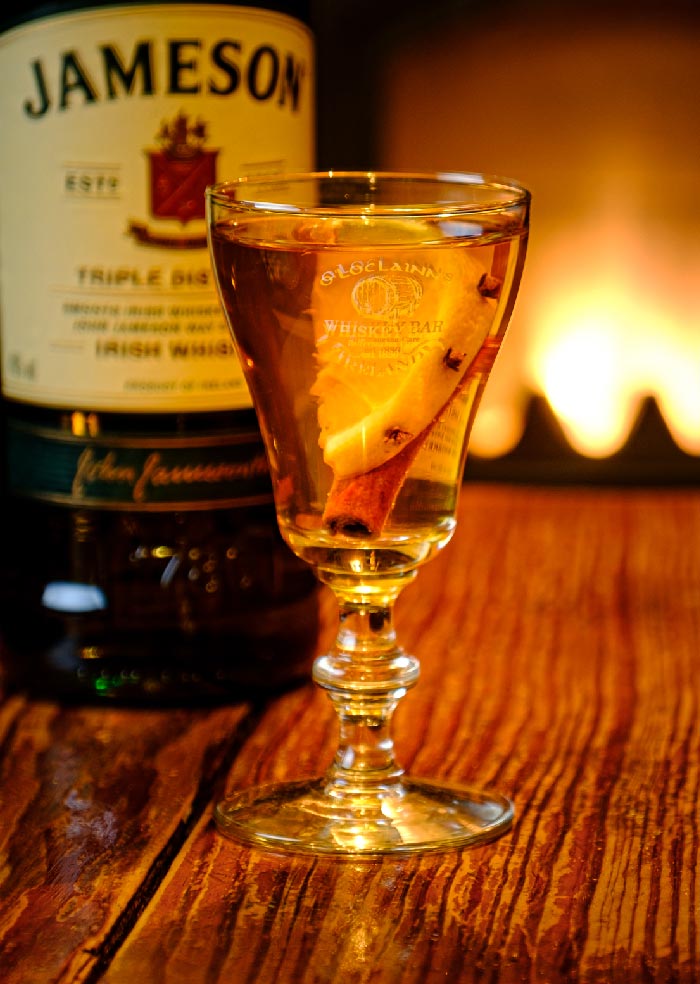
Your Whiskey Journey
Today our pub is known for our extensive collection of whiskeys from Ireland and around the world and we have earned quite a reputation as a ‘whiskey museum’.
Peter’s father, MacNeill O’Loghlen, is credited with the incredible range of whiskeys on display – now numbering over four hundred bottles. There are many distilleries represented – including Irish distilleries of note such as Bushmills, Cooley, Jameson, Locke’s and, Midelton. Irish single malts such as Bushmills 16 Year Old Malt and Locke’s Special Edition are all here – along with specialist Irish blends such as Spot-Range and Midleton Very Rare. Many of our whiskeys are from distillers which no longer exist, while we also have an impressive collection of international whiskeys. As a testament to the unique charm and hospitality of O Loclainn’s, some of the whiskeys on display are gifts from visitors to Ballyvaughan – sent to the pub on their return home.
We serve a full menu of classic cocktails, spirits and draught beers. Another favourite for which we are renowned is our fine, award-winning Irish Coffee – which owes its unique flavour to the rich cream we collect after daily milking of our own dairy herd.
Our History
| 1608 | King James grants landowner and Governor of county Antrim, Sir Thomas Phillips, a license to distil. |
| 1796 | Midleton Distillery is established in Midleton, county Cork. |
| 1840s | Our building in Ballyvaughan begins operating as McNamara’s Hotel – run by Dylan Thomas’s father-in-law. |
| 1840s | Our original bar operated as a tea blending shop. |
| 1846 | Persse’s Galway Whisky is established by Burton Persse. |
| 1900s | The Irish War of Independence, US prohibition and the introduction of Scotch blended whisky have a negative effect on the Irish whiskey industry. |
| 1920s | McNamara’s Hotel is purchased by MacNeill and his brother Eamonn. Today the pub is still affectionately called ‘MacNeills’. |
| 1987 | The Cooley Distillery is established in county Louth. |
| 1996 | Peter and Margaret O Loclainn become proprietors of the establishment and the pub is named ‘O Loclainn’s’. |
| 2020 | O Loclainn’s wins the Powers Irish Coffee Competition 2020. |


There’s history on every wall
When you visit, look out for these famous reminders of days gone by…
A photograph from Ireland’s famous Laurence Collection (1870 – 1905) on display in the Ladies Snug. It depicts a typical scene at the pub in the 1840s when it was owned by Dylan Thomas’ father-in-law.
An enamel endorsement by the AA forerunner, The Motor Union of Ireland, hanging outside the pub.
Wonderful old shop fittings and a sample tea bag as a reminder of the days when the bar was originally a tea-blending shop.
Bar Menu from the 1800s together with stamps used when bottling the imported Old Port, Marsala, and Madeira.
A rare 1880s map of the Captain Bindon Blood Estate showing the annual rents paid by farmers in the Ballyvaughan and Gleninagh districts.
Persse’s Whisky Mirror from H.S. Persse Nun’s Island Distillery in Galway, circa 1815 to 1913. Oddly, ‘whiskey’ is spelt without the ‘e’. Originally run by Patrick Joyce, this distillery was bought by Burton Persse in 1840 and Persse’s Galway Whisky was established in 1846 – with an annual output of about 400,000 gallons. The whiskey’s label proudly claims “as supplied to the House of Commons” since a member of the English Parliament sampled some of the whisky upon arrival in Galway. Persse’s was also one of the first Irish distilleries to bottle their own miniatures.
The most famous member of the Persse family was Isabella Augusta Persse (1852 – 1932), or Lady Gregory of Coole Park, county Galway. An Irish dramatist, folklorist and theatre manager, Lady Gregory co-founded the Irish Literary Theatre and the Abbey Theatre with poet William Butler Yeats and playwright Edward Martyn – and wrote numerous short works for both companies. She is mainly remembered for her work behind the Irish Literary Revival.
The distillery closed in 1913, probably because of increased competition from larger Dublin distilleries who conquered Galway. In 2002, a full-size bottle of Persse’s Galway Whiskey was discovered: claiming to be the rarest bottle of whisky in the world it went on sale for £100 000.
Weigh Bridges next to our premises, dating back to the market days that were held in Ballyvaughan on Thursdays during summer and autumn. Back then, weigh bridges were the only mechanism by which the trading of agriculture produce such as potatoes, wool and pigs took place commercially until the mid- 1950s.
Photographic Collection by Veronica Nichelson – First exhibited in 1998, these works capture local characters including MacNeill together with a full list of names.
O Loclainn’s at the movies – We’re proud to have featured in two films – ‘The Irish Pub’ and ‘A Proper Pint’ which won Best Travel Film at the Los Angeles Independent Film Festival 2015.
Distilleries of Ireland
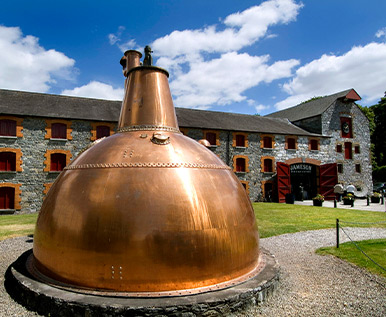
Midleton Distillery
Skill, ingenuity and a little luck produced this special gem in Midleton – situated between Cork city and Youghal town. What is now the distillery was once a woollen mill and then a military barracks for the British government during the Napoleonic wars. The distillery was founded in 1825 and was built for volume – producing some 400 000 gallons of whiskey a year. Today it offers a fine collection of whiskeys – including an extensive Pot still range and aged whiskeys such as 30 Year Old Midleton.
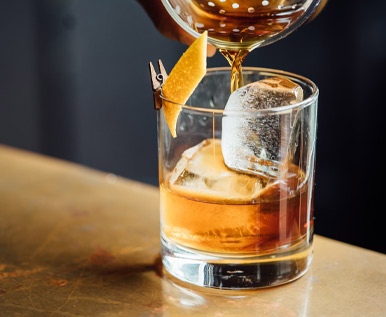
Cooley Distillery / Kilbeggan
A place of true innovation and the first distillery to open in over 100 years, Cooley in county Louth began distilling in 1989, when John Teeling adopted the Scottish model of double distilling in copper pot stills. Its most popular products include Greenore, Connemara, Tyrconnell, Millar, Lockes and Kilbeggan brands. Cooley also acquired an old distillery and a production facility in Kilbeggan – which enabled the continued production of historic brands such as Locke’s and Kilbeggan.
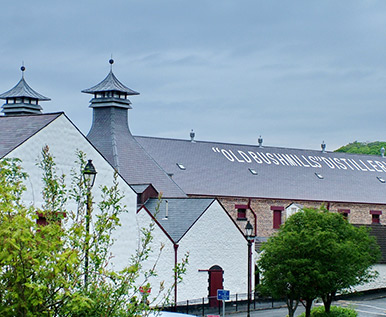
The Old Bushmills Distillery
Originally built in 1784, the distillery’s story is linked to the beginnings of whiskey in Ireland when a royal permit to distil in Ulster was granted by King James I to a local landowner in 1608. Bushmills is one of the few distilleries in Ireland to use 100 percent unpeated malt barley and one of the even fewer that triple distil their whiskey. The Bushmills’ suite of spirits includes the popular Black Bush, as well as aged single malts and Single Casks – all available at O’Loclainn’s.
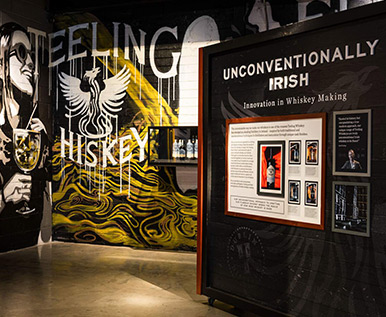
Independent Irish Whiskey Companies
Ireland has recently seen a whiskey renaissance – with the arrival of new brands from independent bottlers and producers. Some source their whiskeys from established distilleries, while many have commissioned new distilleries, such as Dingle Distillery in county Kerry, Walsh’s Distillery in county Carlow, Teeling Whiskey Company in Dublin, JJ Corry in county Clare and Tullamore Dew in county Offaly.
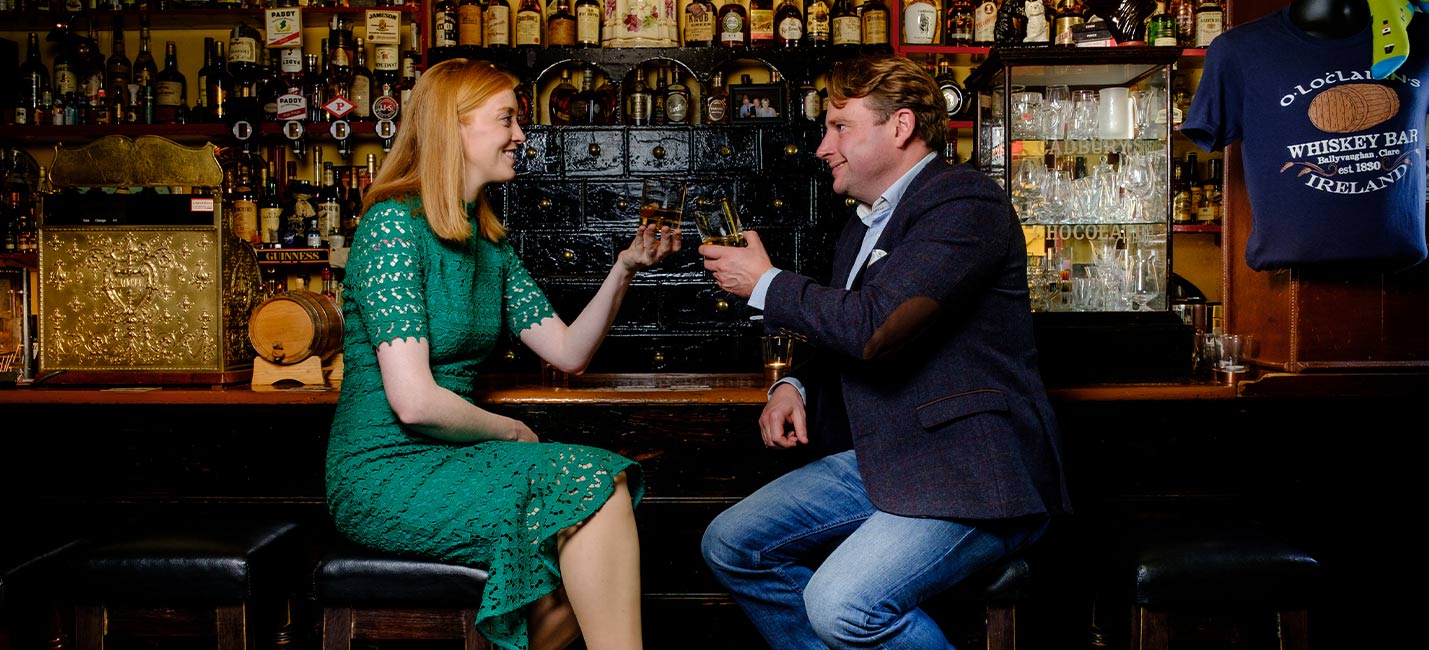
Whiskey Appreciation
Here’s a quick guide to whiskey tasting…
Nosing
Take the glass of whiskey in the palm of your hand and let it breathe a little. Look at the colour as you gently swirl it – is it light gold, bright copper or rich amber? Lift the glass to your nose, inhale slowly and deeply – and decide if it is light, medium or full aroma? ‘Rich’, ‘robust’, ‘mellow’, ‘simple’ and ‘complex’ are some of the words you might use. At O Loclainn’s we recommend that you add a drop of water to the glass – this helps release the whiskey’s full bouquet.
Tasting
Hold the first sip in your mouth and let it roll along your tongue so your taste buds can distinguish the whiskey’s complex aroma. The palette of a whiskey can be described in many ways including ‘sherry’, ‘richness’, ‘spicy’, ‘nutty’ and ‘vanilla’.
Finish
After you’ve savoured the taste, you are left with ‘the finish’ – which is the flavour that remains in your mouth long after the whiskey has disappeared. Very different from the initial taste, this essence can be ‘sweet’, ‘dry’ or ‘smooth’.

